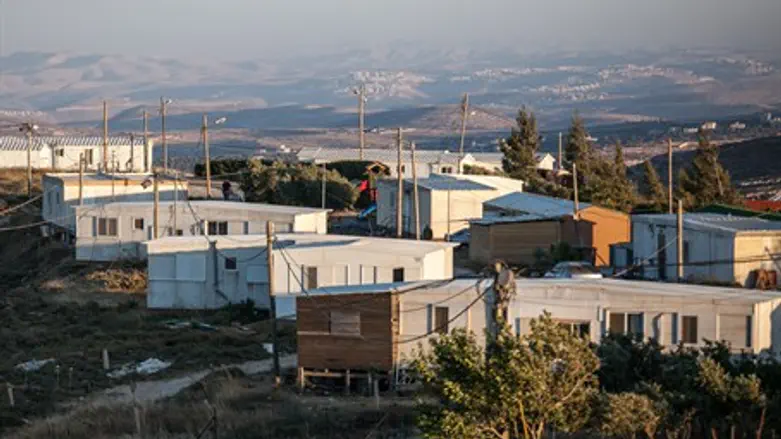
A new development in the legal battle over the town of Amona has given Israeli residents cause for cautious optimism. The court has asked residents to deposit hundreds of thousands of shekels in order to officially register their claims to land in the community.
The town of Amona north of Jerusalem has faced the threat of forcible eviction since 2006, when the Supreme Court ruled that it was built in part on privately owned Arab land.
Amona residents say that most of the land on which their community was built was legally purchased from local Arabs. They are asking the court not to seek demolition orders against homes built on the purchased land.
Rabbi Yair Frankel of Amona spoke to Arutz Sheva about the case. Currently, he explained, the debate before the Supreme Court is centered on the question of lands that have been claimed as Arab-owned land in theory, but which are not claimed by any particular Arab as his or her property.
“The state has argued that we should remain where we are, because there’s no logical reason to expel families when there is no claimant,” he said. “We are arguing that, beyond that, as those who have been on the land for about twenty years we have rights.”
The money that Amona residents are being asked to leave as a deposit would be set side and given as compensation to Arab owners of the land, if such owners do in fact exist and later make an appearance, he explained.
Residents came up with the money by taking loans, he said. “We’ll have to raise the money later,” he added.
Some of the Arabs seeking Amona’s destruction are affiliated with Hamas, Rabbi Frankel reported. However, he said, many are simply afraid of what will happen to them if they do not go along with the lawsuit.
“Some of them are arguing that the land is their's because of the law that selling land to Jews is a death penalty offense,” he said, referring to a Palestinian Authority law which imposes the death penalty for selling land to Jews. “If that law weren’t there, the same people would happily take the money and it would be over, but because of that law and the violence in the Palestinian street, those who sold their land and those with no connection to the land are fearful, and claim ownership.”